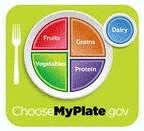Nutrition and Health Sciences, Department of

Department of Nutrition and Health Sciences: Dissertations, Theses, and Student Research
First Advisor
Weiwen Chai
Date of this Version
8-2017
Document Type
Thesis
Abstract
Childhood obesity rates have dramatically increased since the 1980’s. This has become major public health concern because children who are overweight or obese are more likely to have obesity-related health issues and are more likely to be overweight or obese as adults. Obesity is also associated with poor dietary habits. Currently, children have dietary patterns that are low in fruits, vegetables, and whole grains. In addition, many Americans lack the knowledge on how to prepare healthful meals and because of this there is a lack of a meal preparation knowledge being transferred to children. To help address these issues it has been suggested that there is a need to teach youth not only nutrition knowledge but also basic cooking skills.
The objective of this study was to examine the impact of a 12-week afterschool cooking and nutrition club on youth nutrition knowledge, eating behavior and self-efficacy, and cooking attitude and self-efficacy among 4th and 5th grade students attending two Title I elementary schools. A secondary objective was to evaluate the novel healthy plate photo to assess youths’ nutrition knowledge.
After participating in the WeCook program, 84.1% of youth reported they really liked to cook and 56% reported they could read a recipe by themselves. Youth significantly increased their knowledge about why breakfast is important and healthy snack options. At post-intervention there was a significant increase in the healthy plate photo scores from pre- to post-intervention with 55.1% of youth scoring the maximum score. Finally, mixed results were seen for healthy eating behaviors and self-efficacy. Further research is needed to understand the effects cooking and nutrition programs have on youth participants related to nutrition knowledge, healthy eating behaviors and self-efficacy, and cooking attitude and self-efficacy.
Advisor: Weiwen Chai


Comments
A thesis Presented to the Faculty of The Graduate College at the University of Nebraska In Partial Fulfillments of Requirements For the Degree of Master of Science, Major: Nutrition and Health Sciences, Under the Supervision of Professor Weiwen Chai. Lincoln, Nebraska: August, 2017
Copyright (c) Ashley B. Walther